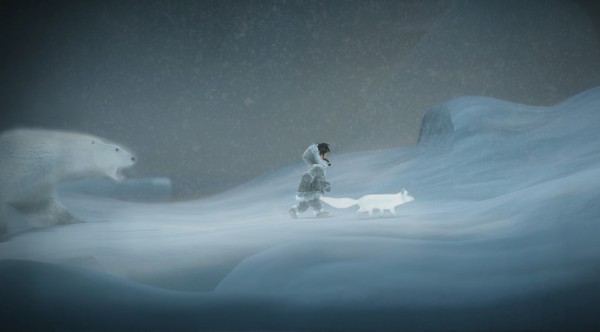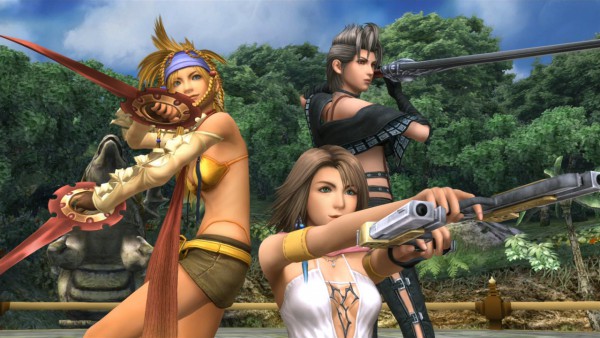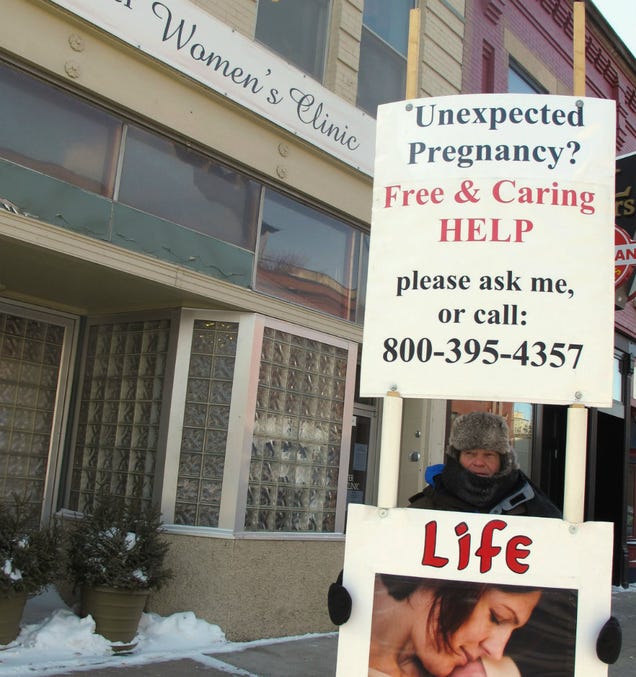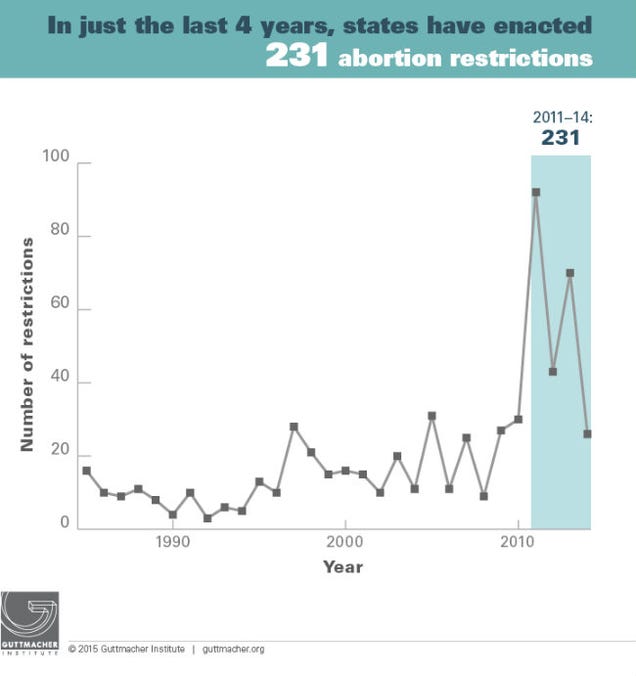I am just about blogged out on the whole Puppygate thing, having devoted half a dozen posts and thousands of words to it over the past few days. However, Larry Correia responded to some of those posts on his own blog, MONSTER HUNTER NATION, as several dozen of his followers immediately emailed me to point out, and I promised to reply in turn. So here it is.
My original posts were long, and Mr. Correia's reply was long, and if quoted them all, and then piled more on top of it, all of Live Journal might sink beneath the weight. So I am going to cut out the stuff by me that Correia quotes, since the originals are all available upstream, and edit down his own reply to just the point I want to answer.
To make it clear who is speaking, I will set off Correia's statements with brackets and try to italicize them... though for some reason the italics on LJ have not been working well of late. We'll see if they work here.
Here goes.
[[CORREIA: When one of the most successful authors on the planet takes the time to talk about something you did, I figure that deserves an in depth response. I’ve got no direct line to Mr. Martin, but I am hoping that this will get back to him.]]
It did. Through several sources. I would have responded earlier, but as you can see, I have been busy posting about other aspects of this thing. But I do appreciate the response, andeven more so, the courtesy you have shown. It's my hope and belief that people on different sides of an issue can disagree, even heatedly, without it turning into rancor and namecalling. We are, after all, fighting about a literary award.
[[CORREIA: When I started this the Hugo Awards were not portrayed as the awards that belonged to WorldCon. They were portrayed as the awards that represented the best of all of fandom. After my first experience seeing how the sausage was made, I publically said the same thing you said there, that the Hugo Awards don’t represent all of fandom, they represent one tiny part of fandom. I was called a liar.]]
I would not call worldcon a "tiny part" of fandom. It's the core of fandom, the seed from which the whole thing grew. Until the mid-80s, it was the biggest and most important convention in the SF world. For people like me, it remains the most important to this day, though certainly not the biggest. The SMOFs who run worldcon made a conscious decision to slow down and even stop the growth, so as to preserve the unique character and flavor of worldcon, the sense of community, the "amateur status" if I might use a sports metaphor. It is not a decision I agree with, truth be told, but I respect their reasons. San Diego Comicon is great, but worldcon is great too, in a different way. The worldcon community did not want a con of 150,000 people, where fans had to wait in line for seven hours to get into a program item.
[[CORREIA: I too was nominated for the Campbell for Best New Writer. As a young, new writer, who had grown up reading the great ones, I was super excited by this incredible honor. See, I was born around when you got your Campbell nomination. I was one of those fans who grew up believing it when great authors said things like “this is your award” and “this award belongs to the fans, the readers”. Because I was naïve. I was overjoyed when I found out I’d been nominated. I was even dumb enough to think that I might have a chance. I had already read works from two of the other nominees and I knew that they were remarkable story tellers. I had read Wells and Beukes and knew the quality of their work was excellent. In any fair wordsmithing contest either could kick my ass, and I hadn’t even read Ahmed or Grossman yet, but if they were as good as the other two, then there would be a lot of quality works to choose from.]]
And indeed there was. That was one of the strongest Campbell fields in recent years.
[[CORREIA: But that’s the kicker… I hadn’t realized yet that for many voters it wasn’t about the quality of the work. Within a few days of the nominations being announced I not only knew that I was going to lose, I knew that I was going to be last place. Only it had absolutely nothing to do with my writing, but rather, who I was, and what I was.]]
Actually, I was pretty certain I was going to lose as well. I was up against George Alec Effinger, Lisa Tuttle, Ruth Berman, Bob Thurston, and Jerry Pournelle for that first Campbell, and everybody and their sister knew it was a race between Pournelle and Effinger, as indeed it proved to be. For me, though, it was an honor just to be nominated... to be recognized as one of the six best new writers of the preceding two years, out of dozens who had broken in during that period. Sure, I dreamed of winning... maybe I'd pull off the most stunning upset in Hugo history... but I was not the least bit surprised when I lost. They never released voting totals in those days, so I don't know if I finished third, fourth, fifth, or last. Didn't matter. What did matter was that the Campbell launched my career, just as it launched yours.
[[CORREIA: I know you remember when you were starting out, Mr. Martin, because you talk about it in this very post, that scrimping, saving, and sleeping on couches phase of your career, where you are desperate to get your work out there in front of people, to get any exposure at all, and I’m betting that you were always really excited to hear what readers had to say about your creations. Right?]]
Sure. Of course, we had no internet in 1973, no emails. I had to make do with a few passing comments in print fanzines, and the occasional encounter at a con with a fan who had actually read one of my stories. Egoboo (as we called it) was hard to come by in those days. I sold my first story in 1970, published it in 1971, went to my con that same year, lost the Campbell in 1973, lost my first Hugo and Nebula in 1974, won a Hugo in September 1975... but it was not until a couple of months later, at the 1975 Windycon, that I was finally deemed to be enough of a writer to be asked to sit on a convention panel. Paying our dues, we called it. Acclaim was hard to come by; it had to be earned, and earning it took YEARS.
[[CORREIA: I know I was. So I went out on the internet and started searching my name, trying to find out what the buzz was for the Campbell nominees. I started calling friends who belonged to various writer forums and organizations that I didn’t belong to, asking about what people thought of my books in there. You know what I found? WorldCon voters angry that a right-wing Republican (actually I’m a libertarian) who owned a gun store (gasp) was nominated for the prestigious Campbell. This is terrible. Did you know he did lobbying for gun rights! It’s right there on his hateful blog of hatey hate hate! He’s awful. He’s a bad person. He’s a Mormon! What! Another damned Mormon! Oh no, there are two Mormons up for the Campbell? I bet Larry Correia hates women and gays. He’s probably a racist too. Did you know he’s part of the evil military industrial complex? What a jerk. Meanwhile, I’m like, but did they like my books?
No. Hardly any of them had actually read my books yet. Many were proud to brag about how they wouldn’t read my books, because badthink, and you shouldn’t have to read books that you know are going to make you angry. A handful of people claimed to have my read my books, but they assured the others that they were safe to put me last, because as expected for a shit person, my words were shit, and so they were good people to treat me like shit.]]
I don't condone treating anyone like shit. And I have never been a Mormon or a conservative or a gun-shop owner, so I don't know what that is like. But I do wonder... you say you were called a liar, that people were angry with you for being who you were, that they said not to read your books... well, no need to paraphrase, you just said it all. But WHO called you a liar? How many people said this stuff, where, in what context? One person, ten people, a hundred?
I don't doubt you got some criticism, that people took shots (no pun intended) at you... but fandom is large, even worldcon fandom. There are always assholes. No doubt they were there in 1973 as well, in that first Campbell race. I mean, have there ever been two contenders as opposite as Pournelle and Effinger? That was a classic Old Wave/ New Wave showdown, with us other nominees just caught in the crossfire. However, the internet did not exist to magnify it all, and most of the sniping went on in room parties, with no permanent record of the drunken debates. I am not sure that what you suffered was any worse than what they did, way back when.
Also, all these things that people said about you... are those direct quotes, or are you paraphrasing? Because it seems to me that the Sad Puppies love to paraphrase, taking any challenge or criticism and tweaking it around to make it more offensive and insulting. Take this "Wrongfan" moniker I now see popping up on Puppy sites. Neither I nor any of the other SMOFs or trufans or worldconners that I know have ever called you or your friends "wrongfans." You guys made that up and applied it to yourself. I wish that would stop. People are saying enough hurtful shit in this debate already without making up new insults and suggesting that the other side was throwing them at you.
[[CORREIA: Now, don’t get me wrong. I’m not lumping all of the WorldCon voters in with that perpetually outraged, politically motivated clique. I know plenty of voters read my books and just didn’t think they were as good as the people I was up against. Awesome. I salute you for you being an honest person with an honest opinion, and let’s face it, people have different tastes. But don’t tell me now that the Hugos don’t have whisper campaigns…]]
I really have no idea what you mean by a "whisper campaign." You make it sound so sinister. Do people talk about books and writers? Sure they do. (They used to do it more. These days, con suite debates are more likely to be about movies than novels). But nobody is whispering. Fans don't whisper. Fans are loud-mouthed and opinionated. And yeah, sometimes rude. "Have you read that new novel by X?" "Yeah, I tried it, but Z is better." "Z? You're kidding. Z is shit." And so on, and so forth. Sometimes they tone it down if X and Z are in the room, but not always.
[[CORREIA: Then I went to my very first WorldCon. Mr. Martin, you talked about your positive, joyous experiences at WorldCon. How you were welcomed as a peer, about how you had all these great, wonderful, memorable experiences. But I’m betting before your first WorldCon a whole bunch of malignant lying bastards didn’t spread the word to thousands of complete strangers that you were a racist, sexist, homophobic warmonger who deserved to be shunned.]]
You'd win that bet. Nobody said much of anything about me before my first Worldcon, because no one had any idea who I was. I was pretty much an invisible person at that con. I had been to one earlier con, and I knew maybe half a dozen people. I spent much of that con standing quietly in corners, trying to look interesting so people would talk to me. Oh, yes, there were a few people who were terrific, friendly, welcoming -- Gardner Dozois, Terry Carr, Phyllis and Alex Eisenstein --but you could count them on the fingers on one hand. Nobody rolled out the red carpet for me. Nobody gave two shits that I was a Campbell Award finalist. So we all have our traumas, Mr. Correia.
[[CORREIA: I met many wonderful people at that WorldCon. I also had many people treat me like garbage. I was berated by other panelists. I had people get up and leave the room when I entered. I had belligerent drunks challenging me at room parties because “Oh, it’s that fucker”.]]
How many belligerent drunks? One? Two? Ten? I think it matters. You say that you were "berated" by other panelists... but panels at SF cons do often become loud and heated, it is not at all unusual. I doubt any special malice was directed at you. WHat was the panel topic? Who was on it? Who berated you? With what words? Is it possible that you were berating the other panelists back? I am not trying to call you a liar, Mr. Correia, but... Some people love to argue, some don't. Some take disagreement to mean disrespect. Some are thin-skinned. I don't know you well enough to know where you fall in respect of all that. Must admit, I would be curious to see this panel. Many worldcons videotape their programming. It would be fascinating to see the tape of your Reno panel, to get a better idea of who said what.
[[CORREIA: A lot of people will tell you now that I bring this upon myself, because I am rude and abrasive on the internet now. Yes. Now. But back then I was still trying to play it cool, and didn’t think I could have a successful career if I made the wrong people angry. It wasn’t until after that WorldCon that I said screw it, they’re going to hate me anyway, might as well state my honest opinions. So I mostly hung out with the Barflies, because they were cool. But I can hang out with Barflies at fifty other cons where I’m not assumed to be the second coming of Hitler because the internet said so. And while I hung out with them, I got to hear how many of them were shunned for various reasons too.]]
I don't know who the Barflies are. Do you just mean you hung out in the bar? Lots of people hang out in the bar at a con, I was not aware there was a specific group. You can always find lots of writers in the bar, usually around some editor who is buying the drinks.
[[CORREIA: Then I went to the award ceremony, and the parties, and the various schmoozefests, and I discovered that the Hugo Awards were like one great big In Joke. And the cool kids told their cool stories to the other cool kids, and lorded it over those who weren’t part of the In Joke. Honestly, it reminded me of high school, and I was the poor fat kid who had inadvertently pissed off the mean girls.]]
Come on, Larry. The cool kids? Surely you have been around fandom long enough to realize that there are no cool kids. We're all the fat kids, the nerds, the computer geeks, the guys who always had their nose in a book, who loved comics and played chess and couldn't get a date for a prom. And the girls are the geek girls, our female counterparts.
[[CORREIA: Then I got to meet and hang out with a whole bunch of authors, artists, and creators who spent most of the con bitching about how broken and biased the Hugos were. Some of these were old school, and got the In Jokes. Some were so talented, so famous, so successful, that it blew my mind that here they were at dinner, pissed off and angry that they knew they would never get any sort of consideration.]]
Did you go to the Hugo Losers Party? That's become an offical con thing now, and the SMOFs have taken it over and made it stuffy and semi-formal, with door dragons deciding who gets in (but as a Campbell loser, you would certainly have been on the list. Gardner Dozois and I founded that party in 1976, the night after I'd lost two Hugos. The whole point was to get drunk and bitter and bitch and tell each other we'd been robbed. We had a little contest, each of us insisting "I am a bigger loser, because... " It was all in good fun. People who get honestly for real pissed off about losing Hugos... no, man, really, that's no good. Fake bitter takes the sting out of losing. Real bitter poisons everything.
[[CORREIA: After the awards were over and all the cool kids patted each other on the back about how brilliant they were, and everything shook out pretty much exactly how everybody predicted it would anyway, they released the actual numbers for nominations and votes, and I discovered just how freaking tiny the number of people involved in this supposedly most prestigious award in the world was. The winners were those who played the game, and as I sat there with the losers, I watched the game already being played for next year. As an author, I was sad. As a fan, I was disgusted. But as an auditor, I marveled at how something so statistically insignificant could be taken so seriously.]]
It's history that gives the Hugos their prestige, not statistics. I believe I made that point at some length in my first post, so I won't repeat myself.
[[CORREIA: That was my first exposure to how the process really worked. So I went home, dejected. And when I openly spoke about my experience, and I said pretty much exactly what you just said there, Mr. Martin, that the awards don’t represent all of fandom, and that they just represent one tiny, insular, clique of fandom… I was called a liar. I was attacked all over again. I was told it was just sour grapes from a loser, but what could you expect from a shit writer, making shit product?]]
Okay, these are some strong statements, and I have to ask once again, is it possible that some of this is wounded feelings and hyperbole? Were you actually called "a liar," or did someone just claim your statement was untrue? Big difference there. Were you "attacked," or did people just disagree with you? Did someone actually use the words "shit writer" and "shit product?" Or is this just more "wrongfan" stuff, where someone says something critical, and it gets turned all the way up to eleven on the offensiveness scale?
[[CORREIA: The Hugos represent greatness, worthiness, and all of fandom. WorldCon is inclusive. How dare you question it? So I said I would prove it, and I did.]]
You didn't, though. At least I do not believe you did. I am not calling you a liar, I am just saying that I believe that statement to be false. In fact, I think my own "Where's the Beef?" blog post pretty well demolished the Sad Puppy claims. Your supporters may not think so. Does that mean they are calling me a liar? My supporters think I was totally convincing, so...
[[CORREIA: I am many terrible things, but dishonest is not one of them. Let me clarify something, because I have been personally attacked for this for three years now. Yes, like most authors I dreamed of winning a Hugo, because I was very naïve. In the past I did very much want to win a Hugo. Just like I was dumb enough for a couple days to think that I might actually have a shot at winning a Campbell. However, I know that I will not ever win a Hugo. I’m way too good at statistical analysis. I had a snowball’s chance in hell before I upset the apple cart and made myself radioactive to the typical WorldCon voter.]]
I wish I could disagree with that, but I won't. I am not dishonest either. You're right, Mr. Correia. You will never win a Hugo. Whether you could have won one before the Sad Puppies, well, I don't know, but now, it is true, you have pissed way too many people off. On the other hand, you know, there are many terrific writers in the history of our genre who have never won a Hugo. Your friend Brad Torgersen has his little list, and I have my own, and the names on his list and the names on mine are very different. Doesn't mean there is a secret conspiracy. All it means is that tastes differ.
[[CORREIA: Not only did I know going into this that I would never win a Hugo, I also knew that I was going to make myself a target, and that I would be slandered, threatened, and have my career sabotaged. But I still did it anyway.]]
Has your career been sabotaged? From reading Monster Hunter Nation, it seems as if your career is going rather well. You're on the TIMES bestseller list, are you not? I know a hundred writers in this field, damn good writers, hard-working and talented, who would love to have their careers sabotaged so that they could be on bestseller lists too.
[[CORREIA: I got a nomination for my novel Warbound last year. The people I’m trying to expose rose to the occasion, formed lynch mobs and started attacking. I got a nomination again this year, for my novel Monster Hunter Nemesis, but I refused the nomination, specifically to prove that this isn’t about me wanting a Hugo. Apparently that still isn’t enough. Allow me to demonstrate my conviction, and state for the record that I will never accept a Hugo award nomination for myself. However, I will continue to assist other authors who I believe have been unfairly blacklisted and shunned get theirs.]]
I try to assist other authors (and artists, and filmmakers, and fan writers) as well, by recommending their works on my Not A Blog. Sometimes it works. More often it does not. If you do the same thing, I doubt anyone will have a problem with it. The backlash you are getting now is because you went way beyond that. Yes, all completely legal... but your campaign, your slate tactics, did not just get some authors you overlooked onto the ballot, it pretty much drove everyone else off the ballot. In the three short fiction categories, there are no choices but your choices (well, yours, and Brad Torgersen's, and Vox Day's). You say you just wanted a seat at the table. But you kicked over the table, and took ALL the seats.
And please, please, don't say that was what was done to your side in prior years. I think I demonstrated in "Where's the Beef?" that that claim is simply not true. There have always been plenty of writers and stories that the Puppies should have liked on the ballot every year. If you think that's untrue, please give me chapter and verse, with specific references to the ballots for Reno, Chicon, and LoneStarCon. Let's at least see where we disagree.
[[CORREIA: While WorldCon complains of the shrinking and greying of fandom, Salt Lake City ComicCon has been around for 2 years and has 150,000 attendees.]]
Comicons -- which are really media cons, rather than just being about comics -- are bigger than SF cons, that's been true since the mid 80s.
[[CORREIA: For some people, books might not be their primary fannish outlet, but they still read books. Just because somebody plays Dragon Age or the Witcher doesn’t mean they don’t read fantasy novels too. Heck, I believe Halo tie in novels are some of the bestselling books in scifi. If somebody was introduced to fantasy by watching Game of Thrones on HBO, and then they bought and read all your books, discovered they liked fantasy and read other books, and they thought some are awesome and deserving of an award, are they somehow lesser fans on the scales of fandom because they don’t know WorldCon trivia?]]
Worldcon is a community. FIAWOL. I don't regard that as trivial. We welcome newcomers, but yes, the hope is that they will embrace our history and traditions and culture, not just our awards. It's a proud history and a rich culture. Some of it is silly, sure, but we even love that silliness. Some of it, like the Hugo awards, we take very seriously.
[[CORREIA: The barbaric outsiders shelling out their $40 to get involved now grew up being told that the Hugos were it, the Big Deal, the best of the best, and like me, they were naïve enough to believe it for a long time.]]
So far as I'm concerned, the Hugos are the Big Deal still. There's no other award in the field with half as distinguished a list of previous winners. The Nebulas challenged for a time, but now they are a distant second.
[[CORREIA: Yet, as the Hugos became increasingly politically skewed in one direction, people can now admit that is because they reflected WorldCon, not all of Fandom, only for all these years Fandom were the ones being told that they were dumb for liking the wrong things. They were wrongfan having wrongfun.]]
Your terms. Neither I nor anyone on my side of this debate ever called anyone "wrongfans."
[[CORREIA: Why do the many people involved in the Sad Puppies campaign seem to hate WorldCon? Because the SJW crowd (I know you don’t like that term, but it is the appropriate one to use here) hates my kind of fan, actively and routinely attacks my kind of fan, and calls them racist, sexist, homophobes without evidence, all day, every day. I know the SJWs are only one small clique at WorldCon, however they are the loudest and the meanest. And sadly, the moderate, rational, normal WorldCon folks rarely seem to condemn them for their antics. So from over here on the Sad Puppies side, they take your silence and lack of condemnation against the hate mongers as tacit approval, and then they tend to lump you together.]]
Perhaps. Maybe there is altogether too much "lumping together" on both sides. From over here, on the other side, it seems as though the "moderate, rational, normal" conservatives rarely seem to condemn the Vox Days and Rabid Puppies on your side, so we take your silence and lack of condemnation against the hate mongers as tacit approval.
[[CORREIA: WorldCon claims to be inclusive, but scroll through the various comments threads on the various fan blogs on my side of the fence and get their perspective sometime. SFWA also claims to be welcoming, inclusive, and apolitical, but again, read how they are really perceived by many. Snobbish, snooty, bossy, self-righteous, etc. Don’t take my word for it—you know I’m terribly biased—but ask them yourself.]]
SFWA can be maddening at times, but it has done an enormous amount of good over the half century of its existance. It is "snobbish" only in the sense that it excludes amateurs and wannabees; it is professional writer's organization, not a fan club. And it is run by unpaid volunteers, much as worldcon is. Having served as a SFWA officer, I can tell you, there's a lot of work involved; work on behalf of fellow writers. I don't agree with everything SFWA does, but I applaud everyone who has given of themselves to work and fight for other writers.
[[CORREIA: Hypothetical question, if Robert Heinlein wrote Starship Troopers in 2014, could he get on the Hugo ballot now? Or would he be labeled a fascist with troubling ideas, and a product of the neo-colonial patriarchy? And before you dismiss that question, maybe you should read up on what the voting clique that shall not be named says about Heinlein now. Sadly, I suspect the only way Heinlein could get on the ballot today would be if my horde of uncouth barbarian outsiders got involved and put him on our suggested slate.]]
Kind of ironic that you should bring up Heinlein, since it was the Puppy slate that knocked William Patterson's Heinlein biography off the Related Works shortlist this year. But to answer your question, I don't think Heinlein would write STARSHIP TROOPERS in 2014. If you know Heinlein, you know that he was a man who changed with the times throughout his career. He was always trying new things, new techniques, new challenges... and his political views changed HUGELY over his lifetime. He wrote much of STARSHIP TROOPERS and STRANGER IN A STRANGE LAND at the same time, yet one book is beloved of conservative military buffs while the other became a hippie bible. I have no idea what he would be writing in 2014... but if he were still at the top of his form, I would love to read it.
[[CORREIA: Yes, I do get angry, and yes, I have said some very mean things as part of that. I know you’re not looking for excuses, Mr. Martin, but I’m a little nobody, no name, hack author, who sells a tiny fraction as many books as you do, who had the bright idea to expose the bias in a biased system. As a result I’ve had people who know better spread the vilest lies about me you can imagine, and even when they know it is a lie, they have continued. For five years, nobody on your side said a damned thing about tone when I was the one being labeled a hatemonger, or a “rape apologist” by disingenuous SFWA presidents, or they were using fabricated “scare quotes” to show I was a homophobic woman hater in the Guardian. So, yeah, I’m angry. When people who haven’t talked to my wife since high school reach out to her, worried for her safety, because they read about how her husband is a wife beater, I get angry. Right now in about 50 blogs going out to I don’t know how many hundreds of thousands of people, the narrative is that I’m an angry white man, trying to keep scifi straight and white and male.]]
There is no excuse for any of that. I tried to speak to some of these issues in my blog post called "Hatespeech." Too much of this kind of shit is flying across the internet in both directions, and I don't think any good whatsoever is served by debates about who flung the first shit, or who flung the most shit, or who flung the smelliest shit.
More and more, I grow convinced that the internet is toxic. Every controversy brings out the trolls and toads, of every political, religious, and literary persuasion, most of them anonymous, all of them venomous. You can't control the assholes on your side and I can't control the assholes on my side. I fear we will both just have to live with that.
[[CORREIA: You know the most heartening things I’ve seen this week are? Writers who are my polar political opposites finally standing up and saying things like yes, Larry Coreia is an asshole, but he’s not any of these horrible things you are accusing him of, or yes, Larry Correia is an asshole, but please quit threatening to kill him and his entire family. That’s been nice.]]
Nice, sure. Basic human decency, really. It is grotesque how you cannot have any sort of discussion on the internet without rape threats and death threats coming into it. Makes me despair for our civilization. Hell, I ever see these things on sports blogs.
[[CORREIA: So thank you for calling for civility.]]
And back at you.
[[CORREIA: LOCUS I think it has like 40 or 50 books but ZERO from Baen (a publishing house that gets a bad rap because it is willing to publish any author regardless of their politics, from capital L Libertarians to card carrying Communists as long as they can tell a good story).]]
Do you think that makes Baen unique? It does amuse that so many of your Sad Puppies seem to revere Baen Books and despise Tor Books, which reveals an astonishing ignorance of publishing. Both Baen and Tor were financed by the same guy, Tom Doherty. You know who the first editor was at Tor? Jim Baen. Tor publishes your Puppy favorite, John C. Wright. Kevin Anderson too, I believe. And Baen published liberals... me, for instance. I knew Jim Baen. He was well to the right of you, I suspect, and we had nothing in common politically, but TUF VOYAGING made money for him, and that was all he cared about. But if you think that's unique to Baen, you are wrong. Editors may be political, but the companies they work for only care about the bottom line. Bill Mayer, Rush Limbaugh, Hillary Clinton, Bill O'Reilly, Rachel Maddow... they will publish all of them, so long as they sell.
[[CORREIA: Yes, there were competing cliques, but the only cliques who mattered all looked virtually identical to us outsiders looking in. And hardly anything they ever nominated represented anything we liked. To most of us barbarian wrongfans, the competing cliques were indistinguishable from one another. For example, correct me if I’m wrong but I believe with last year’s winners, every single one shared similar political viewpoints. And all but one of them was white, yet that year was hailed as a huge win for diversity. You need to see this from Wrongfan’s perspective. You guys had competing cliques, but to us it was like an Eskimo having a thousand different words for snow, and you can tell us about your many diverse and wonderful types of snow, but all we saw was snow.]]
Come on. Really? Look at the LoneStarCon ballot, the last before the Sad Puppies really began to have an impact. John Scalzi and Lois McMaster Bujold. Indistinguishable from one another? Can't tell Brandon Sanderson from Saladin Ahmed? Jay Lake and Kim Stanley Robinson? Ken Liu and Pat Cadigan, identical snowflakes? How about the editors? Stanley Schmidt of ANALOG and Sheila Williams of ASIMOV's, do you imagine they had the same taste, published the same stories? In long form editor, you had Toni Weisskopf, a Puppy favorite, against Patrick Nielsen Hayden, who your Puppies love to hate, with Sheila Gilbert of DAW thrown in as well, plus Lou Anders and Liza Gorinsky. All just snow? I mean, if you say so... but I see a feast there, a table laid out with all sorts of different meats and fruits and cheeses. Diversity all over the place.
[[CORREIA: And in recent years when we looked at the ballots it was like, awesome, let’s choose between these five items of approved socially conscious message fiction. Yay! We’ve got selections from: religious people are stupid bigots, capitalists are raping the earth, capitalists are stupid bigots, bigots are stupid, and I’m not quite sure what the hell this last thing is about and I’m not even sure if it qualifies as fantasy or scifi but it has bigots in it… Oh man, tough call.]]
That made me laugh, I admit. Very funny... but it's all hyperbole and sweeping generalization. I don't recognize any of those characterizations. Which book was "bigots are stupid?" Which one was "capitalists are stupid bigots?" Can you slap name tags on these straw men?
[[CORREIA: I don’t want to be Hugo Pope.]]
Oh, good. That big pointy hat wouldn't look good on you.
[{CORREIA: Last year I didn't do anything different than what was listed above. I talked about it on my blog. I tried to motivate and rally people to get involved. I plugged stuff I liked. And all of a sudden there was a little clique of Wrongfan nominating for LonCon, just big enough to get one item into every category. We were no different than the other above mentioned subfandoms. Yet, somehow, when I did that, I was a filthy villain, breaking all the rules, with no respect for tradition. Just as I predicted, there was a wrathful terrible public backlash from the clique which shall not be named, and even though I went into it knowing that none of us would actually win, once the final results came in, the leaders of the clique which shall not be named out of respect for Mr. Martin, moved the goal posts, and danced in our blood. Articles were written about how these horrible racist hate mongers were soundly driven from the sainted halls of WorldCon. Back beneath your rock, foul barbarians! And anyone who supported Sad Puppies was motivated by racism! Booooooo!]]
I think that once again you are paraphrasing and turning the insult dial up to eleven. I will agree that there was a backlash. Permit me to suggest that much of the negative press you got derived from the fact that one of the stories you placed on the ballot was that novelette by Vox Day, who was already infamous by that point because of his attack on Nora Jemison, his run for SFWA president, and his expulsion from that organization. Here we are back again to the "lumping together" we discussed earlier. Had Vox Day not been on your ticket, I suspect the backlash would not have been a tenth as vociferous as it was. Imagine, for example, that there had been a "SJW" slate the same year, and that they had gotten half a dozen stories on the ballot, but one of those had been by Requires Hate? (Actually, of course, Hate was nominated for the Campbell, but under a pseudonym). The lashback would have been just as nasty. In your case, it did not help that the Day story was terrible. Your public platform was all about restoring "quality" to the Hugos, and yet one of your standard bearers was the worst piece of writing on the ballot. (In my opinion, of course. All of this is opinion).
[[CORREIA: To be perfectly frank, some things changed between LonCon and SasQuan. I’d proved my point about the bias and attacks, and was ready to hang it up. They poked the bear, the bear mauled them, and now the bear just wanted to go back to his cave and be left alone. But Brad Torgersen is an idealist, Mr. Martin, I can’t accentuate this enough. He would be dead in Westeros in fifteen minutes. Brad is TruFan. That man waves his nerd flag high. He looks at the Hugo with adoration like it is some sort of religious icon with a halo around it. He prays to his altar of Saint Heinlein 3 times a day and lights candles for Frank Herbert. If I was naïve at first, Brad makes me look… hell… I don’t even have a good comparison. So when he grew up hearing that the Hugos represented the Best of the Best, bright shining light on the hill, he incorporated that into the very fiber of his being... At that point Sad Puppies was no longer just about proving a point. It was about giving a voice to a whole mess of fans who didn’t think they would ever have one again. The mission changed, and it became about getting deserving worthy creators who would normally be shunned or ignored some freaking recognition for once in their lives. It was time to stand up to the clique that shall not be named and their lectures about how we were having wrongfun. Unlike the existing cliques, Sad Puppies 3 didn’t give a damn about politics, race, religion, or orientation. All we cared about was could they tell us a damned good story.]]
Got it. Politics, race, religion, and sexual orientation, OUT. Damned good stories, IN. And for this year's Damned Good Story standard bearer, you chose... John C. Wright SIX TIMES!!! John C. Wright, a writer famed far and wide for having no opinions on politics, race, religion, or sexual orientation, and would never dream of injecting such messages into his Damned Good Stories. Because, after all, the Puppies get sad when they are made to read Message Fiction.
So Wright is in, and who is out? James S.A. Corey. Emily St. John Mandel. John Scalzi (of course). THREE BODY PROBLEM. Joe Abercrombie. Larry Niven. Greg Bear. Daniel Abraham. John Varley. William Gibson. Joe Haldeman. Greg Benford. Lev Grossman. Stephen King. No damned good stories there. I guess. No real science fiction, no exciting fantasy, nothing entertaining or commercial, just pretentious left-wing literary crap, right?
[[CORREIA: If the people attacking us don’t chill out, more of my people are going to get pissed off, and it might hit a 12 or 13 next year. :)]]
OH, believe me, I know. And we'll go right up to 13 with you. And Vox Day and his band of not-so-merry-men will go right to 23. And then the Hugos will pretty much be dead, and the world of science fiction will be that much the poorer.
[[CORREIA: If you want to talk about going forward, from here, I don’t know what to tell you about your campaigning cliques. They were already there long before we showed up. But you really want to “fix it” and make sure my people don’t screw it up anymore, and keep the Hugos sacred? Well, right now the ball is in your court. You’ve got people out there who supposedly love the award so much that they are organizing block votes for No Award against absurdly deserving yet consistently overlooked people like Jim Butcher, Toni Weisskopf, and Kevin J. Anderson, all to burn the whole thing down, just because my people violated your secret gentleman’s agreement and plugged them on a slate.]]
I have already posted about my opposition to the various NO AWARD strategies. I hope that NO AWARD will not sweep the board top to bottom. My best guess right now is that it won't, but there is a good chance that NO AWARD will take all the "All Puppy" categories, the three short fiction categories and Best Related Book. No one really knows, of course. We are all in uncharted territory here.
[[CORREIA: I think you will find that the people who are involved with Sad Puppies are willing to talk about the future, but we are very tired of being yelled at and lied about. No matter what happens, whether you like the term for them or not, you guys need to calm your SJWs down, and tell them to quit forming angry twitter mobs, and scaring the hell out of authors who cross their invisible lines.]]
If I could clap my hands and make everybody play nice, I would, but I do not have that superpower. But it is interesting that you talk about "scaring the hell out of authors" on your side. Fear is a big part of this. People on the other side of the fence are scared as well, and when people are afraid, they lash out. Both sides here feel they are being attacked, and the war of words just seems to keep escalating, and all that can come of that is mutually assured destruction.
I like to think the Hugo represents a starship, not a nuclear missile.





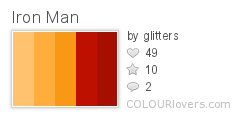





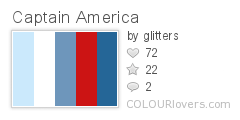





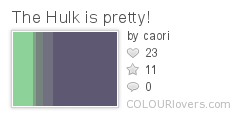






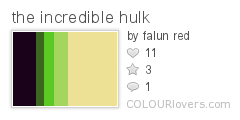




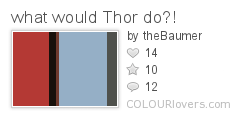





















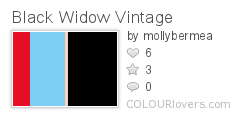



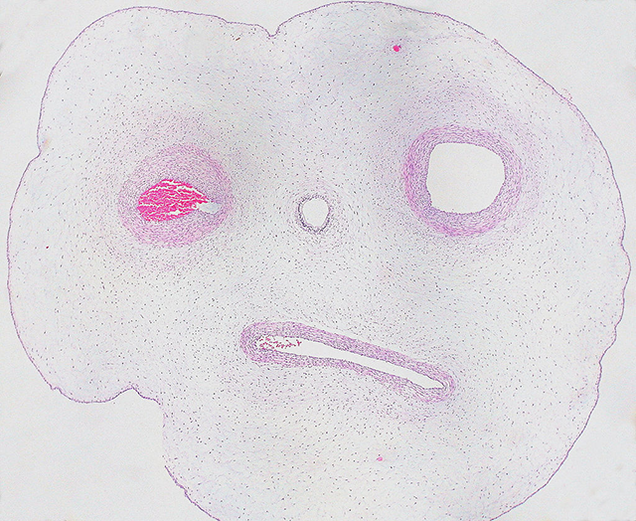



























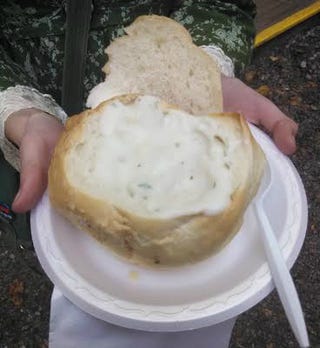

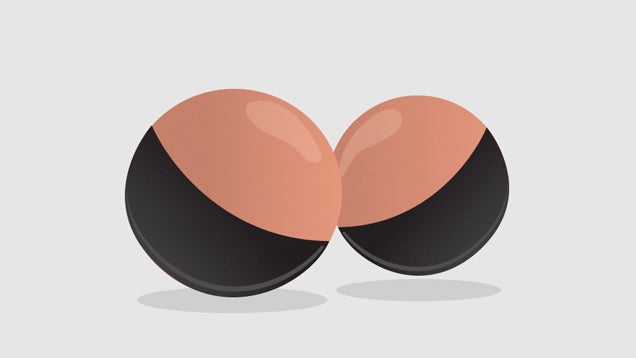

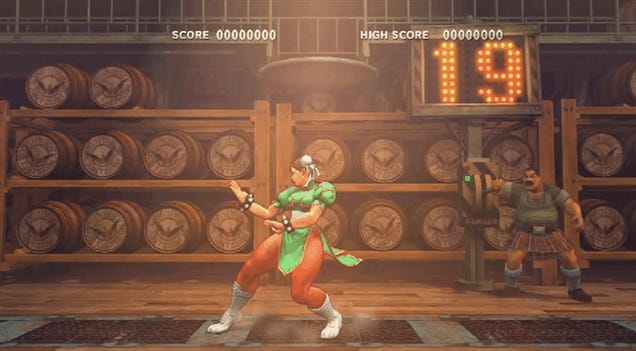
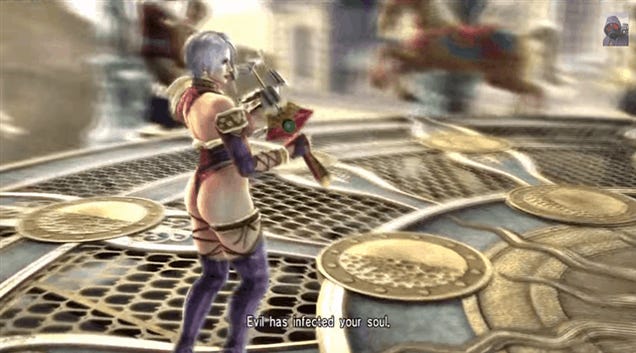
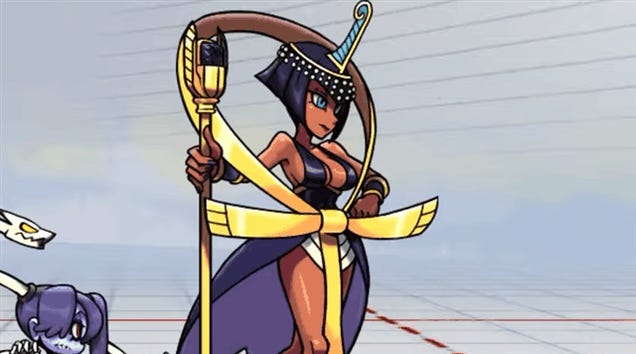 (Source:
(Source: 
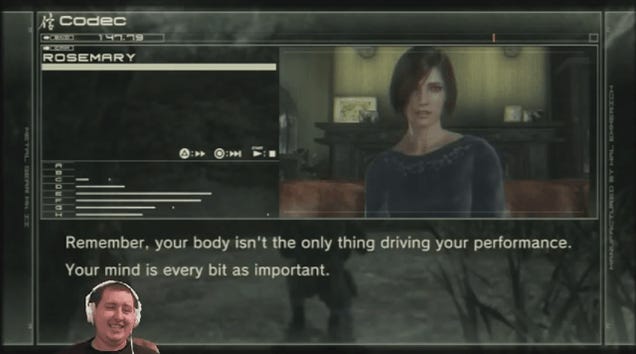 (Source:
(Source: 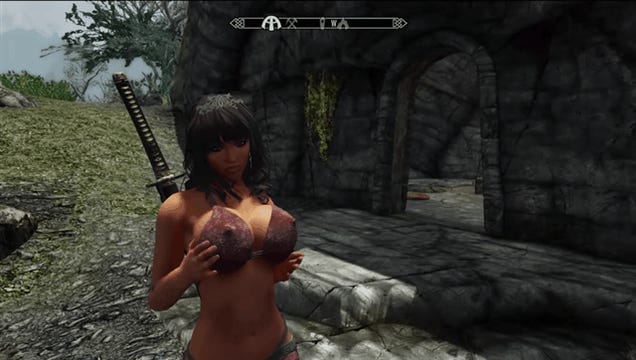
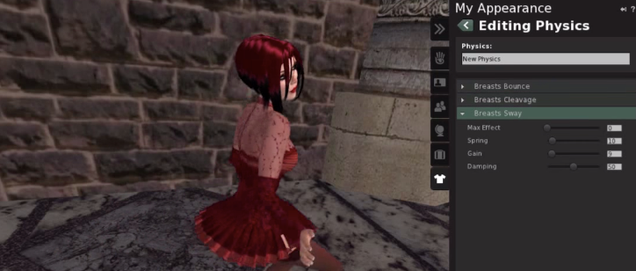
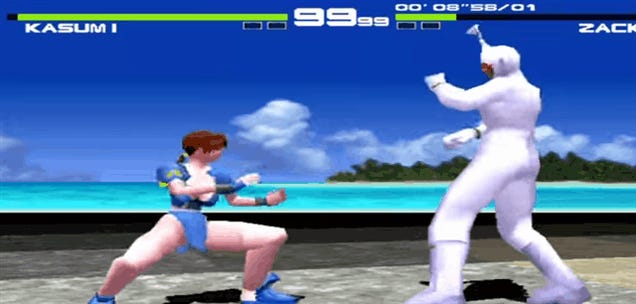



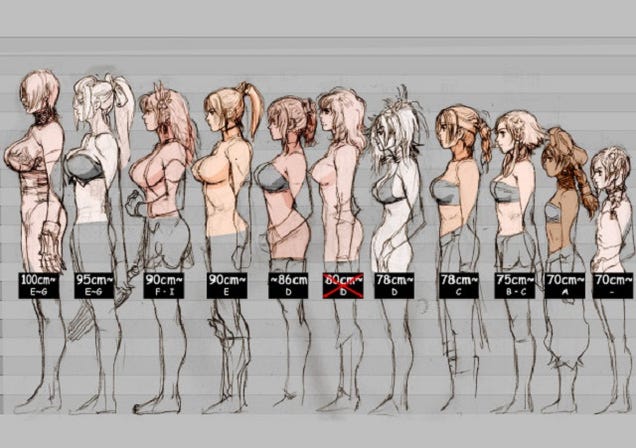
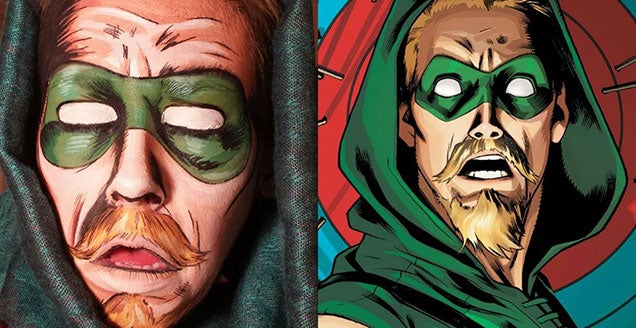


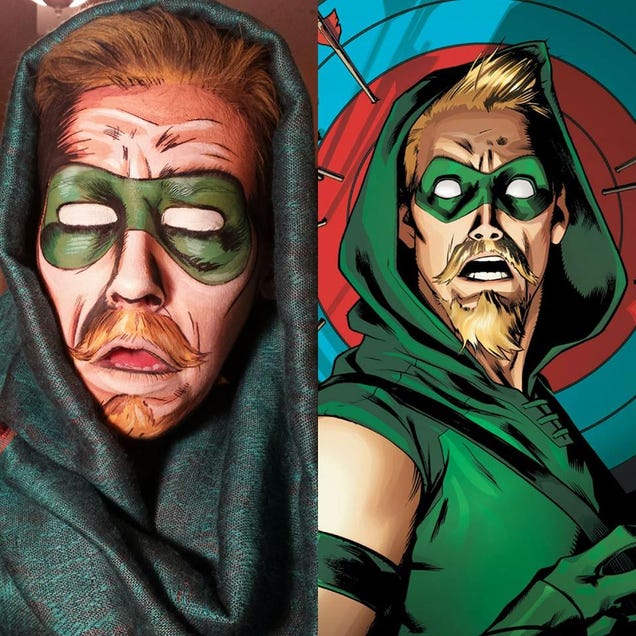
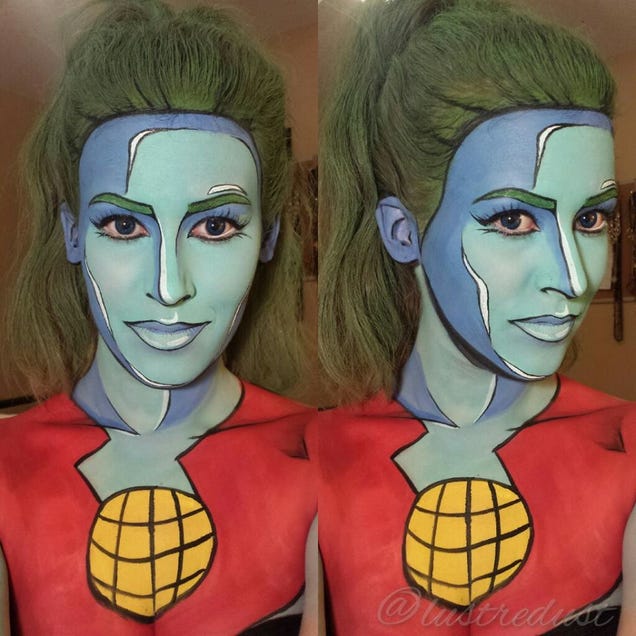





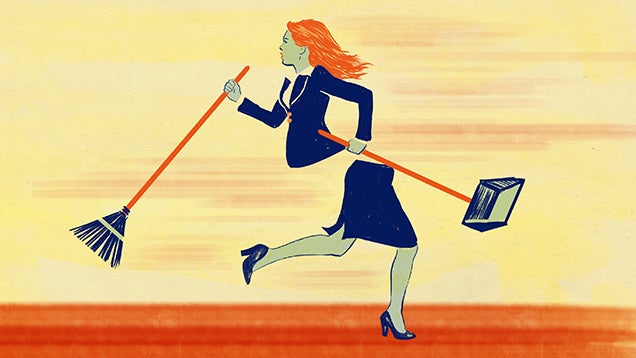
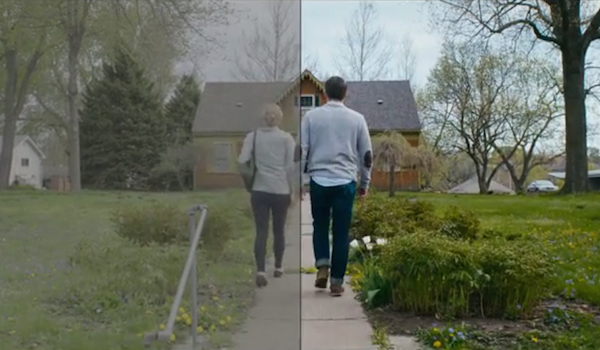
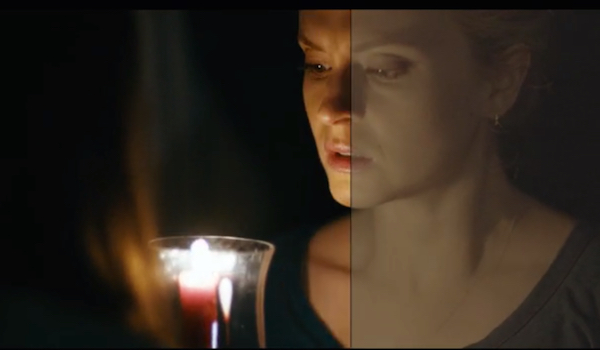


![[Art by Ashe]](https://femhype.files.wordpress.com/2015/02/self-care-header-e1423151202204.png?w=1280)
